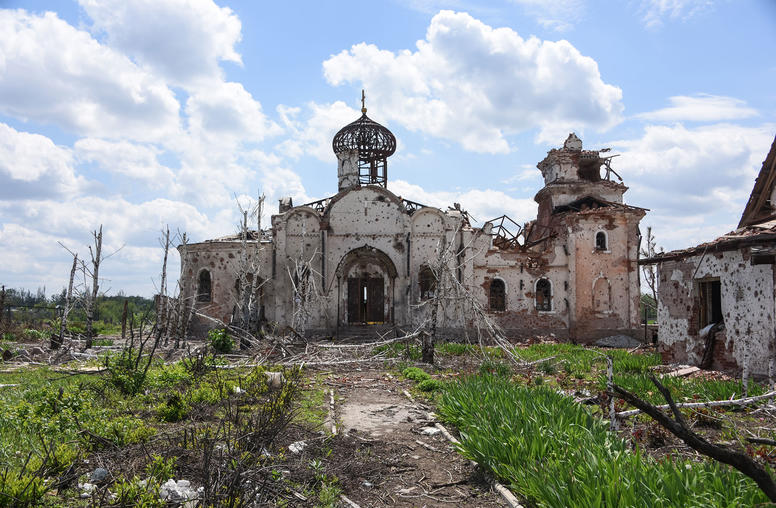 Burma
Burma
In February 2021, Burma erased 10 years of progress toward political reform after the military took power in a coup. Since the coup, the military has created an environment of chaos and terror — waging a war against the Burmese people, who refuse to be subjected to brutal military rule. While revolutionary forces have driven the military out of strategic territories across the country, the military has responded with routine airstrikes on civilian targets, turning Burma into one of the most violent countries in the world. The country has also become the world’s largest source of opium, methamphetamines and cyberscam operations, which directly threaten U.S. national security. Post-coup, Chinese security influence in Burma has increased dramatically, further challenging U.S. economic and security interests in the region.
Since 2021 , the U.S. Institute of Peace has supported dialogue and negotiations among Burma’s resistance actors with the aim of achieving a shared political vision; supported local community security initiatives and faith-based groups to reduce violence; exposed the growing presence of China-linked criminal networks and provided pragmatic options for responding to threats from transnational organized crime that directly impact U.S. national security. In addition, USIP’s Burma program provides timely research and analysis on conflict dynamics in Burma for practitioners, policymakers and observers in Burma and abroad.
Learn more in USIP’s fact sheet on The Current Situation in Burma.
Featured Research & Analysis

The Current Situation in Burma
Following 10 years of gradual progress on political and economic liberalization—and a landslide victory for the NLD in the 2020 election—the Burmese army took power in a coup on February 1, 2021, just hours before the newly elected members of Parliament were set to convene. The army has quickly reversed hard-won progress toward democracy and human rights in Burma. It has arrested elected officials, activists, and journalists, done away with even the most basic civil and political rights, blocked access to social media, and, intermittently, to the internet entirely.

China’s Rhetoric on Myanmar Doesn’t Match Reality
As Myanmar’s civil war grinds on and increasingly threatens China’s interests, Beijing has stepped up its engagement with all sides, especially Myanmar’s junta. The announcement that China and the junta plan to “establish a joint security company to protect Chinese investments and personnel in Myanmar” has raised concerns and speculation that this initiative could worsen the conflict and endanger the Myanmar people and Chinese nationals working in Myanmar.

Myanmar’s Escalating Crisis: A Year in Review and the Road Ahead
Myanmar's post-coup conflict has now stretched into its fourth year, with no resolution in sight. Far from subsiding, the conflict has escalated dramatically. Last year was particularly devastating for the Myanmar military, marking its worst losses in history. The fall of key military strongholds in Lashio and Ann stands as the most significant events but is only part of a broader pattern of losses; 91 towns and 167 military battalions have been lost, signaling a crisis of unprecedented scale for the regime.
Current Projects

Religion and Conflict Country Profiles
USIP’s Religion, Peace and Conflict Country Profiles (RPACCs) are concise analytic overviews of the religious landscape in countries at risk of, currently experiencing or recovering from violent conflict. RPACCs are intended to be used primarily by policymakers and practitioners looking to develop rapid familiarity with the nature and status of religion in a given country of interest as well as to understand how religion intersects with conflict and peace dynamics. The RPACC series is an outgrowth of USIP’s previous work on Religious Landscape Mapping in Conflict-Affected States.

Religious Women Negotiating on the Frontlines
In recent years, peace processes — such as the track 2 intra-Afghan negotiations — have shown that on both a moral and practical level, women’s inclusion is essential. Women’s involvement in peace processes increases their likelihood of success and longevity and can increase legitimacy. While more literature on women contributing to mediation and negotiation efforts is slowly being produced, little attention is currently being paid to the already existing work of women who employ their faith and mobilize religious resources for peacebuilding.

Religion and Nonviolent Action
Since 2020, USIP’s programs on religion and inclusive societies and nonviolent action have been conducting research to better understand the role of religion in nonviolent action campaigns. Many of the most prominent activists and nonviolent movements in history have drawn on religion as they worked to build peace and advance justice. Historical figures such as Martin Luther King Jr. and Mahatma Gandhi often come to mind. But religious leaders, beliefs, symbols and practices have featured just as prominently in more recent nonviolent campaigns, including the Arab Uprisings, the Spring Revolution in Myanmar and Hong Kong’s Umbrella Movement.